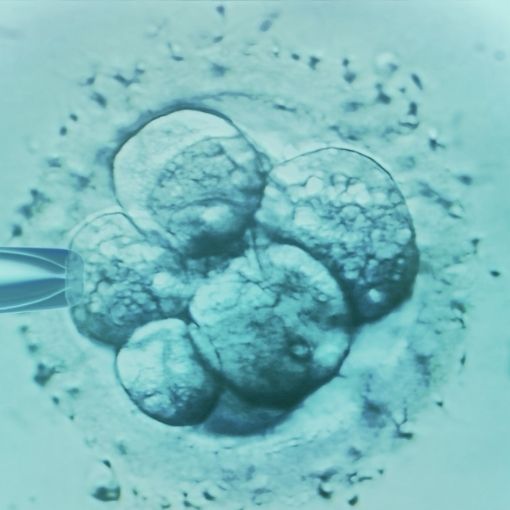That moment when you decided it was time to try for a baby was probably a pretty big milestone. However, it can become frustrating when it doesn’t happen as you imagined. You’ve probably spent years taking precautions trying not to get pregnant. So it’s natural to start worrying about why it’s not happening for you when pregnancy happens with very little effort for so many others.
For most women, it really is just a matter of time before you get pregnant, and although a year can feel like a long time when you are trying to conceive, it’s actually completely normal.
For some women, however, other factors may contribute to their failure to conceive. In this article, we will look at six reasons why you might not be getting pregnant, despite your best efforts!
How long should I wait before seeking help when I can’t get pregnant?
Over a year, 84% of couples who are TTC will fall pregnant in that timeframe when they have regular unprotected sex 2-3 times a week. For the other 16%, it may take a bit longer. The standard advice from the NHS is that if you have been trying to conceive for a year or more without success, it’s time to speak to a doctor. If you or your partner are over 35, the advice is to seek help sooner, after six months of trying. If you have reached the point where you need to seek help, please know you are not alone, and 1 in 7 couples in the UK suffer from infertility.
There are several reasons why you might not be able to conceive, or it will be more difficult for you. Here are six possible causes:
1. Not having sex at the right times
Everyone tells us that as teenagers, we will get pregnant simply by looking at a boy. However, experience and time will tell us actually you are unlikely to get pregnant unless you have intercourse on your most fertile days of the month. That’s usually five days out of your entire cycle. Your fertility peaks in the days leading up to ovulation and the following days. If you’ve been TTC for a while, then tracking your ovulation cycle could be the answer to get your timings right.
There are several ways to track your ovulation, including basal body temperature charting, ovulation predictor kits, and cervical mucus monitoring. You can read more about these techniques and learn more about ovulation by checking out our ultimate guide to ovulation here.
2. Not ovulating consistently
Ok, so if you are timing sex correctly but still getting no joy, it’s time to consider what else could be happening. It’s possible that you might not be ovulating correctly or regularly, which can cause problems when TTC. Hormonal imbalances, body weight, excessive exercise, stress or conditions such as polycystic ovary syndrome PCOS can cause irregular menstrual cycles.
3. Male infertility
Yep, unless you use a sperm donor, it takes two to conceive a baby. Fertility issues do not just apply to the person carrying the baby. In around 30% of cases, there is a problem with the sperm, such as low sperm count or abnormal sperm movement or shape, that can affect your ability to conceive.
It’s hard to diagnose male fertility issues without analysis of the semen. This is why both partners are checked and tested for fertility issues when speaking to a doctor.
4. Age
It sucks, and it’s unfair, but our fertility begins to decline after we reach around 35 years of age. While it’s not a hard cut-off point, once you reach your mid-thirties, egg quantity and egg quality can start to decline, and it can simply take longer to get pregnant. This is why it’s recommended that women over 35 who are trying to get pregnant should consider seeking medical help after six months of trying to conceive without success.

5. Your cortisol level is too high
Cortisol is the stress hormone. Whenever someone tells you just to relax or suggests you’ll get pregnant when the time is right, your stress levels are likely driven higher because of the unhelpful comments. This increased stress can hinder the production of other less vital hormones, like your reproductive ones.
So when you are dealing with excessive stress levels due to work, over-exercising or life in general, your cortisol levels can increase. Your body will need to utilise all available resources to make the cortisol, and sometimes this means essentially stealing progesterone from your reproductive system, making it more challenging to get pregnant.
Managing stress is easier said than done. Whilst occasional stress isn’t likely to impact your fertility, excessive stress felt most of the time can have an impact. If you are feeling stressed out on a regular basis, try meditating, doing some gentle yoga, or simply going for a walk to clear your mind.
6. Obstructed fallopian tubes
Blocked, damaged or scarred fallopian tubes can make it tricky for a sperm to fertilise an egg and is a common cause of infertility. This can be caused by an infection, endometriosis or a previously undiagnosed sexually transmitted disease. Some ladies with blocked fallopian tubes experience some pelvic pain, but others experience no symptoms making it hard to diagnose without investigation.
Conclusion
These are just 6 of several reasons why your efforts to make a baby are not paying off yet. If you are under 35 and have been trying for less than a year, hang in there! If it’s been a little longer or you are worried about your fertility at any point, make an appointment to discuss your concerns with your doctor.
Are you looking for advice on fertility, ttc or anything else? Join the Hoopsy fertility community for advice from community members and fertility experts.




